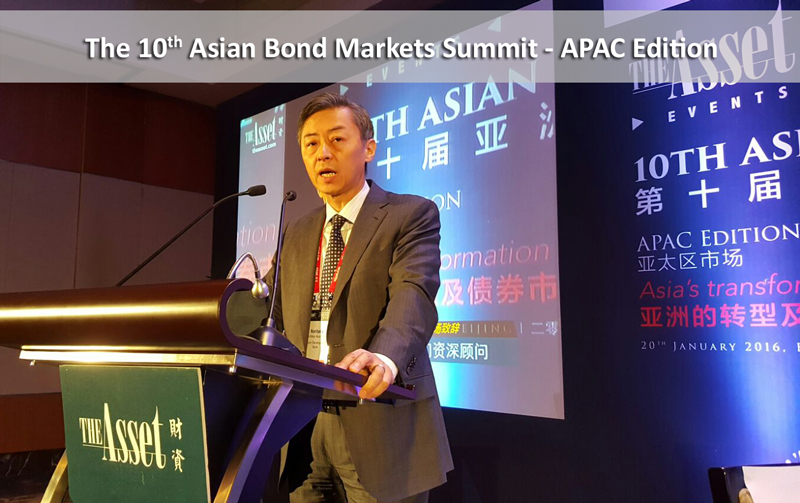 |
|
|
Noritaka Akamatsu, Senior Advisor, Sustainable Development & Climate Change Department, Asian Development Bank |
BEIJING – The development of China’s bond market will play a critical role in making the renminbi global amid investor expectations that the Chinese government is committed to internationalize its currency, says Noritaka Akamatsu, deputy head, office of regional economic integration of the Asian Development Bank (ADB).
In a keynote speech before delegates at The Asset 10th Asian Bond Market Summit 2016 being held today at The Westin Beijing Financial Street Hotel, Akamatsu says that the China’s bond market has grown its share in the region last year to reach 32 trillion yuan (US$5.9 trillion).
“Two thirds of that amount is government bonds which led the growth. A little less than half of the government bonds were actually issued by policy banks such as China Development Bank, Agricultural Development Bank of China and Export-Import Bank of China,” Akamatsu says.
He says the bond market is critically important for supporting China’s structural reforms as the country undergoes restructuring of local government debt.
“In 2015, local governments were prohibited from using so-called local government financing vehicles for borrowing and are now required to directly assume their liabilities. Some of their bank loans have been refinanced with local government bonds. This enhanced the transparency of China’s public finance and significantly increased local government bonds albeit from a small base,” he says.
China’s corporate bond market has also grown, led by bank and insurance issuers who are using subordinated debt to enhance their capital, liquidity and solvency.
“China’s corporate bond market bears some unique characteristics, which reflect the nature of the underlying economy. Most corporate issuers are majority state-owned (23 out of top 30 issuers). Seven of the top ten issuers (or 11 of the top 30) are banks. The state-owned issuers are seen to partly bear sovereign credit and, therefore, have very high credit rating. They are traded mostly in the so-called interbank market, and banks use those bonds for repos, which is making China’s corporate bond market look unusually liquid,” Akamatsu says.
Pure private sector corporate bonds are listed and traded on the Shanghai stock exchange, but the exchange market is much smaller and less liquid. Medium-term notes (MTN) are a dominant instrument and are traded in the interbank market.
“If the government of China continues its effort to restructure the state-owned corporations and implement regulatory reforms, China’s corporate bond market may change its shape,” he adds.
Banks are the largest investor in Treasury and policy bank bonds (three quarters by banks). Until recently, they were also the single largest group of investors in corporate bonds (about a quarter) but their share recently declined.
“If the majority state-owned corporations are further privatized and their bonds become private corporate bonds, banks may stop using them for repos, which may reduce their liquidity. If Basel III continues to be phased in, banks may refrain from holding the others’ bonds, and the placement of bank bonds may increasingly rely on insurance companies and other institutional investors. China needs to further promote pension funds, building on its effort to address population ageing,” Akamatsu says.








